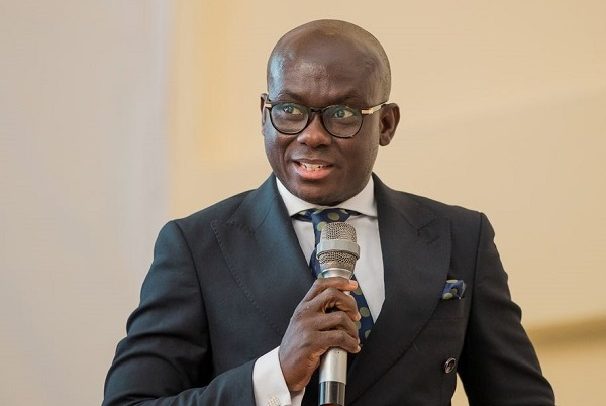
By Rita Agyen TAKYI
African cities are at the crossroads of global significance, standing as hubs of culture, innovation, and resilience.
With over 60% of Africa’s population projected to live in urban areas by 2050, the nature of urban development in the next decade will lock in the continent’s economic, trade, climate, and welfare futures.
This critical juncture offers an unprecedented opportunity for cities to define their development pathways, less reliant on aid and more focused on partnerships and homegrown solutions.
City diplomacy; the process of engaging global partners to co-create solutions, has become a powerful tool in this effort.
By leveraging their youthful population, abundant creativity, and immense potential, African cities can chart a course toward progress and prosperity.
African cities: vibrant hubs of possibility
African cities represent resilience, innovation, and the boundless energy of youth.
With over 60% of the continent’s population under the age of 35, cities like Accra are not only centres of economic and cultural activity but also homes to the next generation of global leaders.
This youthful energy is a critical asset that must be harnessed through strategic global partnerships, skill development, and inclusive urban policies.
City diplomacy offers a framework to tap into these strengths, enabling cities to collaborate on shared challenges and opportunities.
Unlike traditional international relations, which often focus on national interests, city diplomacy prioritizes the needs of local communities while fostering global impact.
Accra’s leadership in City Diplomacy
Accra has embraced city diplomacy as a cornerstone of its urban development strategy, transforming challenges into opportunities.
Through deliberate engagement with global networks, the city has forged partnerships that align with its vision for sustainable growth.
The Accra Metropolitan Assembly (AMA) has leveraged international partnerships to implement innovative solutions across climate action, migration, waste management, and cultural diplomacy.
Initiatives like the CLEAN Project with the Mayor’s Migration Council and the C40 Cities Climate Leadership Group underscore Accra’s commitment to tackling critical issues like migration and climate change.
Accra’s collaboration with Paris on waste management has brought best practices in recycling and waste reduction, addressing one of the city’s most pressing urban challenges.
Similarly, the Bloomberg Philanthropies Youth Climate Action Fund has empowered young leaders to spearhead climate resilience projects, demonstrating the power of harnessing our youthful population for global change.
City Diplomacy as a driver of local impact
City diplomacy is not an abstract concept; its results are tangible. In Accra, international partnerships have brought improvements in climate resilience, waste management, and economic growth.
The Migrant Desk Initiative, launched in collaboration with IOM Ghana, is a prime example. By enhancing data collection, intergovernmental collaboration, and advisory services, the desk addresses the unique needs of migrants while aligning with global frameworks like the Global Compact for Migration.
Cultural diplomacy has also played a transformative role. Collaborations with cities like Durban, Freetown and London on culture and circular economy have elevated Accra’s cultural identity on the global stage, attracting tourism and business partnerships while celebrating the city’s rich heritage.
A call for African leadership in urban development
As African cities grapple with rapid urbanization, climate change, and economic inequality, it is imperative to define development pathways that are less reliant on aid and more grounded in partnerships and self-reliance.
City diplomacy provides a platform to engage global actors while retaining local agencies.
The next decade is critical. How we design and develop our urban spaces will determine the continent’s future in trade, economic growth, and climate resilience.
By leveraging the ingenuity of our cities and the energy of our youth, African cities can position themselves as leaders in global sustainability and innovation.
A vision for the future
Accra’s vision for city diplomacy is rooted in collaboration and inclusivity. We aim to expand partnerships in renewable energy, digital transformation, and inclusive urban planning, ensuring that our growth benefits all residents.
Public engagement will remain central to this effort, with forums and educational programs raising awareness about the importance of city diplomacy in shaping a resilient and prosperous Accra.
More broadly, African cities must work collectively to tackle shared challenges. By forming regional networks and sharing best practices, we can amplify our impact and solidify our role in the global arena.
The lessons Accra has learnt from managing urbanization to fostering youth leadership can serve as a blueprint for other cities on the continent.
The power of partnerships
City diplomacy is about more than international relations; it is about creating better lives for our people for generations to come. By embracing partnerships and defining our urban development pathways, African cities can unlock their full potential.
Accra’s story is a testament to what is possible when cities take ownership of their futures. As Accra continues to build a globally connected, locally impactful city, I urge residents, businesses, and stakeholders to join in this transformative journey.
Together, we can ensure that African cities stand not only as symbols of resilience but as beacons of progress and prosperity for the world.
Rita is an International Development Professional and a Special Advisor on International Affairs to the Mayor of Accra.
The post City Diplomacy as a catalyst for Africa’s urban transformation appeared first on The Business & Financial Times.
Read Full Story
















Facebook
Twitter
Pinterest
Instagram
Google+
YouTube
LinkedIn
RSS